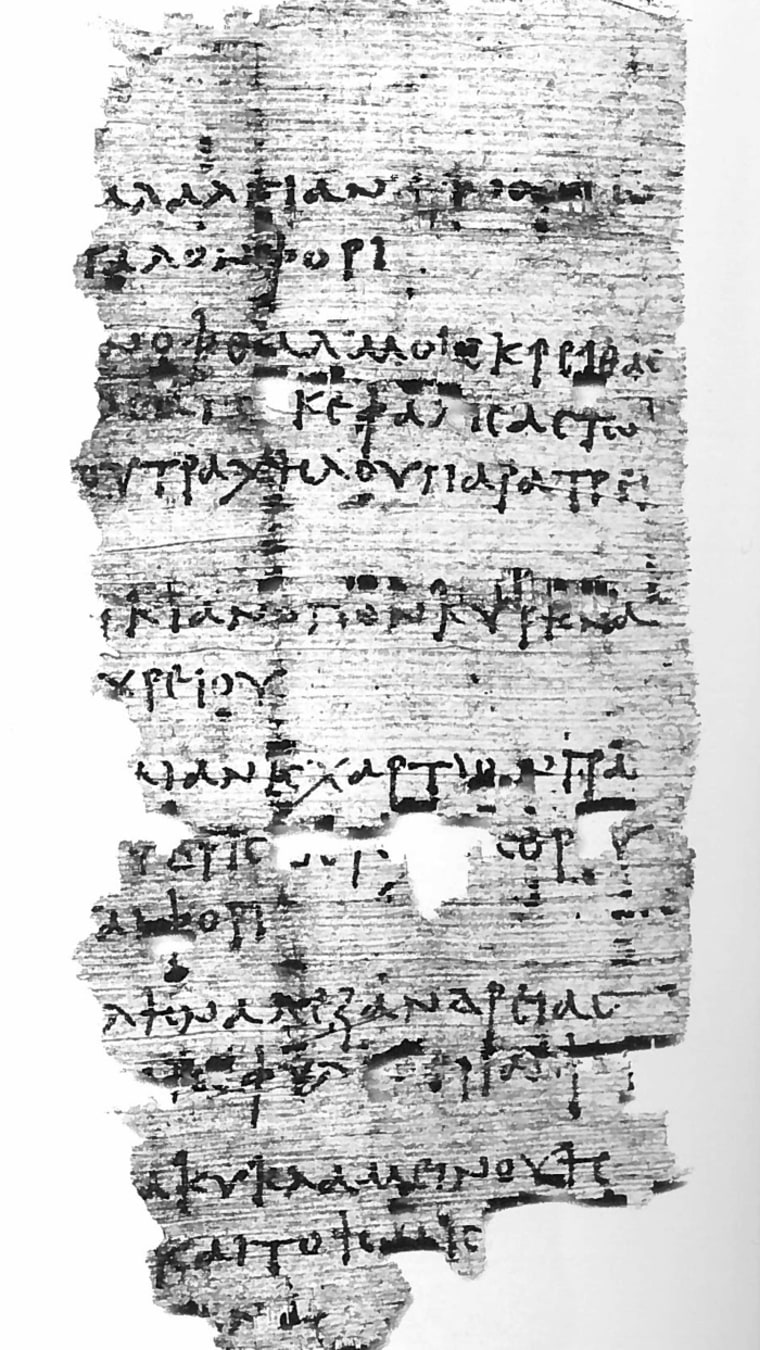Hiding a hangover in ancient Egypt would've taken some work. Rather than popping an ibuprofen for a pounding drunken headache, people in Egypt may have worn a leafy necklace.
That's according to a newly translated and published papyrus written in Greek with the recipe for a "drunken headache" cure. The alcohol victim would have strung together leaves from a shrub called Alexandrian chamaedaphne (Ruscus racemosus L.), possibly wearing the strand around the neck, the text revealed.
Though people in the ancient world believed Alexandrian chamaedaphne could ease a headache, whether the cure really worked, let alone on a drunken headache, is unknown. [Myth or Truth? 7 Ancient Health Ideas Explained]

The 1,900-year-old papyrus containing the hangover treatment is one of over 500,000 such documents found in the ancient Egyptian town of Oxyrhynchus by researchers Bernard Grenfell and Arthur Hunt about a century ago.
The study and publication of so many papyri is a long and slow task that has been going on for a century. Recently, volume 80 was published, containing studies and decipherments of about 30 medical papyri found at Oxyrhynchus, including the papyrus with the hangover treatment.
This newly published volume represents "the largest single collection of medical papyri to be published," wrote Vivian Nutton, a professor at University College London, at the beginning of the volume. The collection includes medical treatises and treatments for a wide variety of ailments, including hemorrhoids, ulcers, tooth problems and even some fragments discussing eye surgery.
The writers of these ancient papyri relied heavily on Greek knowledge. The ancient residents of Oxyrhynchus strongly embraced Hellenistic (Greek-influenced) culture, something that spread throughout Egypt, and the wider Middle East, after the conquests of Alexander the Great, Nutton said.
The medical papyri are now owned by the Egypt Exploration Society and are kept at the Sackler Library at Oxford University.
This is a condensed version of a report from Live Science. Read the full report. Follow Live Science @livescience, Facebook & Google+.